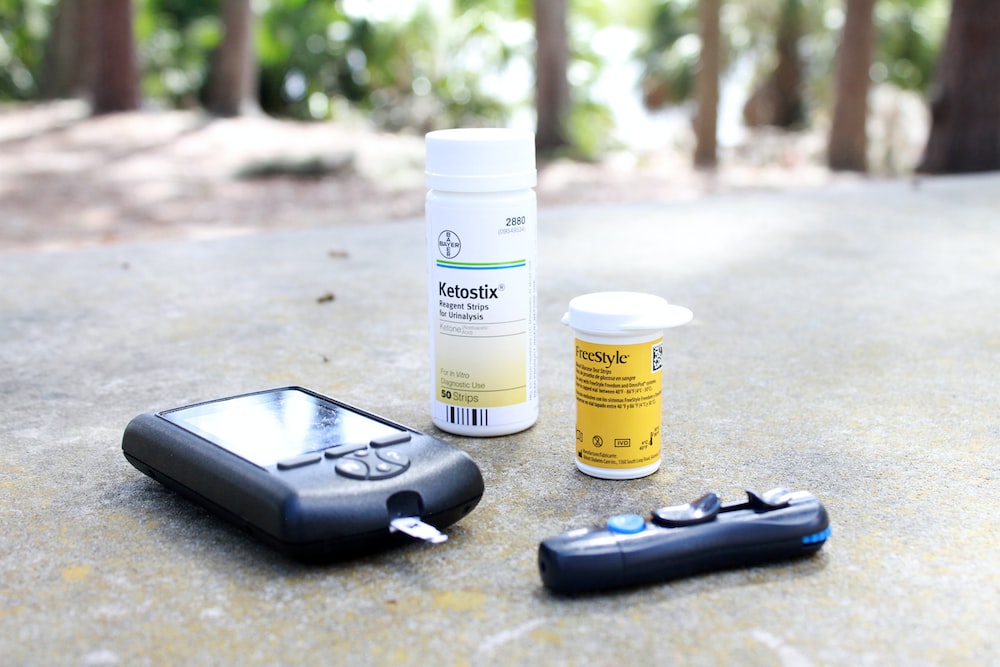Testing for ketones is an important part of managing blood sugar levels. Testing allows you to identify when your blood sugar levels are too high, so you can make adjustments to your diet and lifestyle to bring them back into a healthy range. Regular testing is the key to avoiding complications from diabetes, and any time is the best time to test for ketones. With the right tools, it’s easy to keep track of your ketone levels and stay on top of your health.
Benefits of Regular Ketone Testing
Regular testing for ketones allows you to quickly identify when your blood sugar levels are too high, so you can take appropriate action to bring them back down. Early detection of high ketone levels can help prevent serious complications from diabetes, such as kidney damage and stroke. Additionally, regular testing can also help you adjust your diet to maintain healthy blood sugar levels.
Tools for Testing Ketones
There are many different tools available for testing ketones at home. Most are simple to use and provide results in just a few minutes. These tools can help you monitor your ketone levels and identify when your blood sugar is too high, so you can make adjustments to your diet and lifestyle appropriately.
The best time of day to test for ketones depends on your individual needs and lifestyle. Testing early in the morning is recommended, as this is when ketone levels tend to be highest. It’s important to note that diet, exercise, and other factors can affect ketone levels, so it’s best to test at the same time each day for accurate results.
Fasting or avoiding certain foods before testing can also help to provide more accurate results. If you’re unsure of the best time to test, consult your doctor or healthcare provider.
Testing for ketones can help you better understand your body and make informed decisions about your health.
Best Time of Day to Test for Ketones
The best time to test for ketones is first thing in the morning. You can also test after meals, or when you feel unwell. Testing for ketones can help identify if your body is not producing enough insulin, so it is important to track your ketone levels. It is easy and quick to do with a simple urine test.
Ketone testing should become part of your regular health routine to ensure your body is properly managing its insulin levels.
For more information, please consult your healthcare provider.
Testing for Ketones During Different Times of Day

Testing for ketones during different times of day is a common practice for those managing their diabetes. While the body typically produces and breaks down ketones throughout the day, it is important to monitor levels to ensure they remain within a healthy range. This can be done by checking urine or blood samples with a home testing kit. Regular monitoring can help individuals adjust their diet and lifestyle as needed to keep their ketone levels in check.
Optimal Ketone Testing Time
The optimal time for ketone testing is an important factor in maintaining a healthy lifestyle.
Ketone testing can help you monitor your ketone levels to ensure that you are achieving the desired results.
It is recommended to test your ketones at least once a day, and more frequently if you are following a ketogenic diet.
Testing should be done in the morning, after a meal, or at least two hours after eating.
It is also important to make sure that the test is done in a consistent manner, so that you can track progress over time.
By testing regularly, you can ensure that you are on track with your ketogenic diet and reach your health goals.
Timing Ketone Tests
 Testing ketone levels is an important part of diabetes management. The timing of ketone tests should be based on individual needs, as advised by a healthcare provider. Ketone testing should be done when blood glucose levels are high, when symptoms of ketoacidosis are present, prior to exercise, and after eating meals. Testing kits are available to measure ketone levels at home.
Testing ketone levels is an important part of diabetes management. The timing of ketone tests should be based on individual needs, as advised by a healthcare provider. Ketone testing should be done when blood glucose levels are high, when symptoms of ketoacidosis are present, prior to exercise, and after eating meals. Testing kits are available to measure ketone levels at home.
Ketone testing is an important tool for people with diabetes to help them manage their condition. It is important that the timing of ketone tests is discussed with a healthcare provider to ensure accurate results.
For more information on ketone testing, consult your healthcare provider or diabetes educator.
Benefits of Testing at Different Times of Day
Testing at different times of day can be beneficial for a variety of reasons. It can help identify potential issues in a project that may have gone unnoticed, as well as providing insights into the best times to conduct certain activities. Additionally, it allows for more thorough testing and tracking, giving developers an opportunity to make more informed decisions.
Testing at different times of day can be especially useful when dealing with time-sensitive projects, such as those involving customer support or data analysis. By testing during various times, organizations can gain valuable insight into how their systems operate and ensure that any problems are addressed in a timely manner.
Overall, testing at different times of day can provide organizations with valuable information that can help them make better decisions.
How to Test for Ketones at Different Times

Ketone testing is an important part of monitoring your health and managing diabetes. Testing for ketones at various times throughout the day can help you better manage your diabetes and ensure your health is in check. Testing ketones is easy and can be done at home with a simple urine or blood test. The results will show you whether you have too few, normal or high levels of ketones in your body. Knowing this information can help you adjust your diet, exercise and medication to better manage your diabetes.
It is important to be aware of the risks associated with ketone testing and to follow your doctor’s instructions carefully. Be sure to test for ketones at the same time each day and take the necessary precautions to stay safe.
With proper monitoring, you can better manage your diabetes and keep your health in check.
The Pros and Cons of Testing for Ketones at Different Times
Testing for ketones is an important part of managing diabetes. It can help identify periods of high and low blood sugar so that the appropriate steps can be taken to manage them. However, it is important to consider the pros and cons of testing at different times. Testing in the morning can provide useful information about overnight activity and the overall trend of blood sugar throughout the day. On the other hand, testing later in the day can be helpful to determine the effect of meals and exercise. While ketone testing can be beneficial, it should be done as part of a comprehensive plan to manage diabetes.
When to Test for Ketones

Ketone testing is an important tool for managing diabetes. It can help you monitor your blood sugar levels and check if you are at risk for ketoacidosis. Testing should be done whenever your blood sugar is over 240 mg/dL, or when you are feeling unwell and may be developing ketoacidosis. Monitoring your ketone levels can also help you adjust your insulin dose or diet to achieve better control of your diabetes.
Testing for ketones can be done in several ways, such as with a urine test strip, a breath test, or a blood test. Each method has its advantages and disadvantages, so it’s important to talk to your healthcare provider about which one is best for you.
Regular testing for ketones can help you stay on top of your diabetes and prevent serious health complications.
Recent Posts
link to Discover the Perfect Time to Water Your Garden
It's best to water your garden in the morning, when the sun is low and the temperatures are cooler. This helps avoid evaporation and ensures that your plants get the moisture they need. Watering in...
link to 5 Tips for Watering New Sod in Florida
When it comes to watering new sod in Florida, the best time to do so is early in the morning or late in the evening when temperatures are cooler and the sun is less intense. This helps reduce water...
Recent Posts
It's best to water your garden in the morning, when the sun is low and the temperatures are cooler. This helps avoid evaporation and ensures that your plants get the moisture they need. Watering in...
When it comes to watering new sod in Florida, the best time to do so is early in the morning or late in the evening when temperatures are cooler and the sun is less intense. This helps reduce water...
